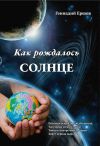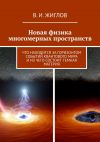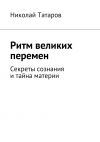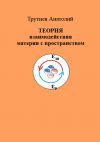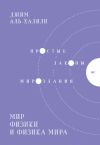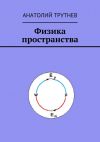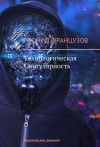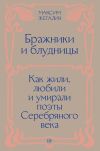Текст книги "SCIENCE AND TECHNOLOGY XXI: Physics X.0 & Technology X.0"
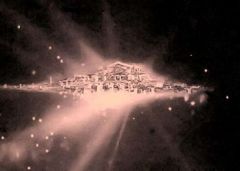
Автор книги: Azamat Abdoullaev
Жанр: Иностранные языки, Наука и Образование
Возрастные ограничения: +16
сообщить о неприемлемом содержимом
Текущая страница: 2 (всего у книги 7 страниц) [доступный отрывок для чтения: 2 страниц]
The Diversity and Unity of the Force-Interaction: the ToE as the Holy Grail of New Physics
All forces are hierarchically related, making up the natural hierarchy of forces, forces, force lines and force fields, topped by the super symmetry force-interaction, a single universal force of coming Theory of Everything (ToE), or Final Theory, Ultimate Theory, or Master Theory, a single, all-encompassing, consistent and complete theoretical framework of physics linking together all the physical properties and phenomena of the universe.
At present, there is no theory of everything that includes the standard model of particle physics and general relativity, such as to calculate the fine structure constant and the mass of the electron, hoping that a deeper search for new particles and dark force at the large particle accelerators could provide critical input for the ToE. There are a number of candidate theories to unite general relativity and quantum field theory, designed as the working theories of quantum gravity: string theory, superstring theory, M-theory, loop quantum gravity, causal fermion systems, and causal sets.
The last two theories are recent developments and in line with our Causal Category Theory of Everything capable to generalize and complete new candidates for a unified physical theory, as causal sets program and the theory of causal fermion systems, considering general relativity and quantum field theory as limiting cases. In the causal sets program, the founding principles are that space-time is fundamentally discrete and that space-time events are related by a partial order, having the physical meaning of the causality relations between space-time events.
Ultimately, the ToE would unify all the fundamental interactions of nature, gravity, strong interaction, weak interaction, and electromagnetism, as well as shedding light on a postulated inflationary force, dark energy and dark matter.
As such, it is makes the Theory of All Forces in the Universe, ordered by the subordination and inclusion relationships (Abdoullaev A., Reality, Universal Ontology and Knowledge Systems: Toward the Intelligent World, IGI Global, USA, 2008):
Prime Force (ToE)::
Quantum Gravity (Space Curvature, Standard Model of Cosmology; Electronuclear Force (GUT, Standard Model of Particle Physics)::
Strong Interaction (SU (3); Electroweak Interaction (SU(2) x U(1))::
Weak Interaction, Electromagnetism U(1em)::
Magnetism and Electricity::
Non-Fundamental Forces (contact forces, elasticity, viscosity, friction, and pressure, etc.).
The non-fundamental forces are classified as
normal force,
friction,
tension,
elastic forces,
continuum mechanics forces of pressure,
drag and stress,
fictitious forces coming from non-inertial reference frames, as the centrifugal force and the Coriolis force,
general relativity gravity.
The pressure gradients and differentials is said to cause the buoyant force for fluids in gravitational fields, the aerodynamic forces of lifting in flight, winds in atmospheric science, like trade winds and anti-trade winds in the tropics.
Besides, forces are also classified as conservative or not conservative, where conservative forces are equivalent to the gradient of a potential energy field while not conservative forces are not. The former includes gravity, the electromagnetic force, and the spring force, while the latter friction, contact forces, tension, compression, and drag.
By their very nature, natural forces are natural causes and effects, all of the same kind of natural entities: events, actions, processes, or changes of states of some physical system, like the motive force is a rate of change of momentum. They are the mutual and reciprocal actions of one physical system or body to another to produce effects, or interactive relationships, the force-interrelationship.
Forces are not only what causing efficient changes of physical properties, but also what opposing any agency and efficiency. Both the active processes producing changes and the reactive processes opposing changes, as the inertial force and motive force, change of momentum-motion, acting power and operating energy, force-fields. And the actions of forces are always in both directions, progressive and retrogressive, direct and inverse, inductive and resistive, attractive and repulsive, forward and backward, while defining the symmetry operations and conserving critical physical quantities as mass, momentum and energy, parity and baryon number.
So forces are not only active agencies, but also passive agencies. Inertial forces, opposing any agency and efficiency, are the universal and inherent power of physical entities and systems to resist physical changes, mechanical, thermal, magnetic, or electric. Such resistive forces are opposing changes in the initial state of equilibrium, in motion, in electrical current, in magnetic fields, in electrical fields, in electromagnetic fields, etc. There are then mechanical inertia measured by mass, electrical inertia measured by conductivity and resistance, magnetic inertia by inductance and magnetic resistance, electromagnetic inertia by induction and permeability, etc.
In other words, the space is inverted (Parity or P-symmetry) and the direction of time is reversed (T-symmetry, or time symmetry) because there are symmetrical forces in their actions and directions, as active and retroactive forces. All the complex physical processes are reversed, converted, retroacted and there is R-symmetry (force-relation symmetry), both global and local, the fundamental principle of nature or the physical universe.
What’s Necessary for the Physical Science of the 21 Century
Our research in theoretical physics, mathematics of relationships and formal ontology has been leading to the necessity of formulation of the new integrative concepts of physical science of the 21st century: Force-Interaction, or Force-Interrelationship, and its Principle of Reversibility and Convertibility Laws, as being among the most basic principles and fundamental laws in nature. That also reflects the general fact that we live in the dynamic universe of force-interactions defining all ensuing regularities in the order of physical entities and processes, including the symmetries and conservation laws (Abdoullaev A., Reality, Universal Ontology and Knowledge Systems: Toward the Intelligent World, IGI Global, USA, 2008).
The enormous theoretical value and practical utility of Force-Interrelationship, Reversibility and Convertibility as the basic constructs and laws of physics and physical sciences are proved by the reverse force-relationships, reversible actions, of all natural effects and physical processes, of all interacting physical forces and fields.
As a consequence of the Reversibility and Convertibility of all physical forces, phenomena and energy forms, each real physical process must have its inverse counterpart, like as there are magneto-optical processes and there converse, opto-magnetic processes, otherwise their nature, law and description should be properly reviewed.
As another consequence, each real direct physical effect, when properly defined, must have its inverse counterpart, as the Faraday effect relating magnetism and optics has the inverse Faraday effect; otherwise its nature, law and description need a deeper study and should be properly reviewed.
Currently, there may be about 10000 physical effects specified by a multitude of physical materials, systems, or force fields, of which the most part happens to be represented by only one-side effect, see the Supplement 3.
On the intuitive level, the idea of convertibility/reversibility in nature complete with the concept of unity of natural forces were guiding principles in Faraday’s discovery of magnetic and electric effects and Maxwell’s prediction of electromagnetic fields caused by the mutual interactions of magnetic and electric force-fields.
If such is the case, many inverse effects are to be discovered under particular experimental conditions, thus giving new physical laws for new physical devices, technology systems, and machines performing the transformation of physical changes and energy (mechanical, thermal, electrical, magnetic, electromagnetic, nuclear) into each other.
Moreover, regardless their multitude and variety, all the existent and not yet uncovered physical effects are falling into one or another of a few physical processes, a self-consistent system of physical phenomena, distributed network of physical processes, first presented as an encyclopedic knowledge base for physical science in 1989 (А. Ш. Абдуллаев, База знаний энциклопедического искусственного интеллекта: Об исследовательском прототипе энциклопедической системы по физике, Москва, ВИНИТИ, 1989).
It is all demonstrated below by widely known physical facts and theories, as well by the mathematical formalism of abstract algebras. Mathematics as the study of quantitative relationships and its branches, as mathematical analysis and abstract algebra of abstract structures, is the critical tool in the natural science of modern physics. Specially, theoretical physics has made many successful achievements due to the functional analysis, linear algebra, groups, fields and rings, while lattice theory, relation algebras and categories got the least application.
Because of its nature, the most full formal description of natural forcible relations exchanging forces, power and energy, can be given in terms of ordered sets, functions, and categories instead of the group-like concepts well-fitting for symmetrical transformations of physical systems and processes and fundamental force-interactions.
In all, the new physical science stands in need of a universal principle of nature to be accountable for the interconnection and convertibility of all physical phenomena, as inverse physical effects, for all nonlinear phenomena and complex dynamic systems, like as the concept of the Fundamental Force-Interrelationship, the Principle of Reversibility and Convertibility of physical phenomena, standard or quantized.
This might be expressed shortly: if there is the Doppler effect or the Faraday effect, there must be the Inverse Doppler effect or the Inverse Faraday effect just BY LAW; otherwise it is not a real effect.
The Nobel Prize in Physics has been awarded 109 times to 201 Nobel Laureates between 1901 and 2015, according to the Nobel Foundation. Of which the foundational achievements were performed in serendipitous empirical and intuitive discovering of special physical effects, like the Einstein’s law of photoelectric effect, the Compton effect, the Cherenkov effect, the Mössbauer effect, the Hall effects and many other effects (like as listed in the Supplement 2).
This great empirical performance has been enriched with new performance in the fields of symmetry and conservation, prediction and detection of new physical entities and properties as superconductivity and fluidity, climaxing with formulating integrating models for the fundamental force fields, or rather the basic force-interactions.
Seeking to streamline physical science, making it more efficient, simple, up to date and systematic, we formulating the universal principle of reversibility in terms of the first principles of force, convertibility, unity, symmetry and conservation, and the fundamental principles of the mathematics of relationship and category theory, The Reversibility Principle is advanced as the essential construct of nature integrating the basic natural phenomena and bringing forth a single strategy of physical science for the future Nobel Prize discoveries. It produces a systematic modelling of diverse physical forces and energies, processes and phenomena to predict the actions of physical forces and effects, to discover and exhibit natural relationships.
The fundamentality of discovery implies if there is the Faraday effect, Lorentz-Zeeman effects, Doppler effect, Einstein’s photoelectric effect, Compton effect, Cherenkov effect, Mössbauer effect, Hall effects…., there MUST be the Inverse Faraday effect, Lorentz-Zeeman effects, Doppler effect, Einstein’s photoelectric effect, Compton effect, Cherenkov effect, Mössbauer effect, Hall effects,…, by LAW, of Reversibility of Effects and Convertibility of Forces and Energies.
In brief, we proposed a model of Nature, with the Force, Reversibility, Convertibility and Unity as its essential constructs, integrating the natural phenomena, causes, forces, processes and effects, and bringing forth a single strategy of physical science.
We showed the universality of reversibility properties of nature as the Principle of Reversibility, being correlative with the Principle of Symmetry and the Law of Conservation, and stating “if there is a physical process or effect in nature, there must be its inverse, converse or reversed process”. Otherwise it is hardly a real effect.
THE LAW OF GLOBAL REVERSIBILITY strictly implies that there MUST be the inverse effects, as of the above-mentioned, just by LAW, of Reversibility of Processes and Effects and Convertibility of Forces and Energies, and that Matter, Energy or Force can be neither created nor destroyed, but reversed and converted.
The discovery involves all the key features of universal laws of nature, being illustrated by an increasing number of inverse effects, as discovered or under discovery, experimental studies or innovative applications.
As such, the Law of Reversal combines all the key attributes of universal laws:
asserting the interdependence between varying quantities of physical properties;
stating that physical events occur an invariant order;
dealing with cause and effect relationships;
stating a constant regularity in the relations or order of physical phenomena in the world, thus embracing all empirical regularities of numerous physical effects.
In sum, an “outstanding scientific importance” of the Principle of Process Reversal and its Effect Conversion Laws consists in enabling the prediction of physical processes and actions of physical forces and effects as well as the nonlinear interactions and macroscopic behavior of complex systems in the systematic and consistent ways without having to consider the details of the courses of physical processes and systems (Abdoullaev, A. (2008). What Determines the World. IGI Global; http://www.igi-global.com/bookstore/chapter.aspx?titleid=28314).
Mathematics of Nature: A Categorical Theory of Everything: the Principle of Reversibility or the Laws of Convertibility
Mathematics of Nature is the key theme of Mathematical Physics X.0, which involves physics, experimental and theoretical, and general ontology of the universe (the first, as its key subject, and the second, as the guiding discipline) and pure mathematics, like as partial differential equations, geometry and topology, abstract algebra and category theory (Abdoullaev A., Reality, Universal Ontology and Knowledge Systems: Toward the Intelligent World, IGI Global, USA, 2008).
As such, it has to generate a complete and consistent representation of Nature as the total sum of material entities, changes, forces and interactive relationships, ideally, in terms of mathematical systems of definitions and axioms, rules, principles, and theorems, as deduced laws. As it was published in a famous list of mathematical problems, in Hilbert's sixth problem, challenging researchers to find an axiomatic basis to all of physics.
In brief, New Physics X.0 is about creating the ToE as a Final Theory, Ultimate Theory, or Master Theory, as a single, all-encompassing, consistent and complete theoretical framework of physics interrelating together all the physical properties and phenomena of the universe.
A Theory of Everything: the Universe as a Pre-Ordered Category of Change Sets
The algebraic language of relations, categories and functors looks the effective mathematical instruments for a formal unified description of interactions of all physical phenomena in nature. All is in terms of force (cause-effect) relationships as the force-interactions and the productive interrelationships of force, energy or power, activity and efficiency, represented by the state-change-variables, or varying quantities of physical changes, or causal sets of events. For the interactive forces of relations are the interrelationships among specific kinds of entity variables, neither object variables nor state variables, but change variables, presented in the material world as physical forces involving changes in quantity (state) variables.
The Reversibility Principle and Convertibility Laws being deduced from the mathematical physics of universal forcible relationship have a close analogy to the duality principle, an essential property of mathematical structures having a lattice order, as set theory, symbolic logic or projective geometry. It states that one true statement, operation, function or effect can be obtained from another by converting, transposing, or interchanging its correlatives. The dual formulation in the natural science of physics is as true as in mathematics.
Bearing in the mind that the nature of force-relations RC is described by the mathematics of relations, relation algebras and abstract algebra of categories, a formal definition of a category of RC is to be obtained by the standard axioms and postulates of Causal Category Theory (CCT):
There is a class of disjoint change sets CX, CY, CX …of a universal change set C;
There is a class of transformations R1, R2, R3 , … of a universal force-interrelationship set RC, named functions describing the forcible relationships between change sets, namely from the domain change sets to the change range sets;
There exists an identity force-relationship of interactions IC = = RC(C, C) which may be associated with each change set X = IX: CX → CX;
To each ordered couple of change sets CX, CY in RC, it is assigned the set of one-to-one transformations R1 (correspondences, morphisms, or maps) from CX to CY, as well as the set of inverse morphisms R1-1 from CY to CX;
To each ordered triple of change sets CX, CY, CZ in RC, it is ascribed a composition function (a law of composition) R1 (CX x CY) → R2 (CY x CZ) = R3 (CX x CZ);
Then it follows that the category of force-interrelationship is to be figured as a pre-ordered category (with involution #) of two disjoint change sets, CX and CY, together with four morphisms: X, Y, R(CY / CX ), and R(CX/CY).
The structure corresponds to a full graph depicted as a symmetrical graph with all the possible interrelations (arcs) between nodes (loops).
As a result, the total of force-relationships can be constructed as the totality of ordered classes of changes. Seeing that the force-relationships belong to the class of causally ordered processes, RC C x C R, the entirety of its connections will constitute the relational structure of the universe, or the physical world W:
RC <C, C x C, , ◦, , # > W
(1)
The algebra of natural force-relations on a set of change variables involves the binary operations of set union and intersection , , direct product x, the unary operations of negation -1 or inversion #, the order relation , and the operation of composition ◦, all is liable to the laws and rules which are valid for formal relationships in general (Abdoullaev, A. (2008). What Organizes the World: N-Relational Entities. IGI Global; http://www.igi-global.com/bookstore/chapter.aspx?titleid=28313).
From Basic Force Fields to Fundamental Natural Force-Interaction
In the language of class variables, the fundamental natural force-relationship of set changes (natural, physical, or chemical) can be formulated as a system of interconnected change variables:
RC = Ci Cj
(2)
Here indexes i and j are subject to conditions: ij=; 0 i, j n; R2 is a composition of relation R such that Ci R2 Cj= Ci R Ck◦Ck R Cj. The force-relation formula indicates that the interplaying forces, or action-causes and effect-effects must be always of distinct types of changes and processes.
The relation = CiRCj CiRRCj CiRRRCj …being a complete enclosure of a finite class of change sets is represented by a full graph where all the nodes symmetrically linked up with each other by directed arrows. That suggests that the bondage or linkage of things can be firstly measured as the set of all possible efficient links (ties, bonds, and connections) among them, plus spatial and temporal relations. Also it suggests that there is no such a strictly fixed priority of input causes before output effects like as given by asymmetrical expression CX x CY, where the order of their being is assumed not to be reversed.
In fact, physical entities interact, being in reciprocal actions and mutual influences, every entity can change (act on) other entities or be changed (is acted upon by) by other entities. Such a universal regularity in the relationships of changes and order of phenomena in the world is described by the Process Reversibility Principle formulized as the equation:
< CX , CY > =# < CY , CX >
(3)
Where the function # R# is reversal operator #: RC RC# which describes the operation of reversing the order of two disjoint changes or actions or force-causes. The reversion rule can be formulated like as CX is a necessary and sufficient for CY, meaning
A change of type CX would bring about a change of type CY if, and only if, CY were to produce CX.
This fundamental principle of change confirms that any fundamental process of the universe stands in a relation of convertibility (reversibility), reciprocity and mutuality, thus accounting for inverted, reversed, reciprocal and interactive phenomena in nature. Alternatively, the principle of inverse force-relations may be read as:
Whatever comes into being as a process just as well will come as the inverse process.
Thus, the real interrelationships of forces, power and energy are transitive, symmetric, and reflexive; for, additionally to the property of transitivity of changes (or actions) when cause of cause is cause of effect, there is also other essential characteristic of process reversibility: the inherent quality of all real processes to be reverted, retroacted or retrogressed in opposite order.
In the natural world, due to the universal phenomena of convertibility and reversibility, processes are arranged in a circle of changes, actions or events; thus making up the mutual, reciprocal natural relationships, as in: RC RC # CXCYCX, where the symbol RC stands for a forward process and RC # for the backwards process. As a result, we obtain a full interrelationship or a circular process made up of distinct changes, CX and CY; of any kind, substantial, quantitative, qualitative, variable, or relational:
(CX CY)◦(CY CX)=CX CX
(4)
The formula indicates that when the forward process has come-to-be, the backwards process must always come-to-be too. In other words, real processes are nothing but mutual relationships of cause-changes and effect-changes, that it is a reciprocal process between two or more kinds of changes.
For such a tendency is retained for more complex cases of ternary, quadruple, quintuple, or n-tuple circles of changes, actions, or causes. So, for the recurring series of actions of the length 3, which is a case of ternary relations (CXCYCZ) (CZCYCX), we obtain a circular chain of three changes CX, CY, CZ such that CX CY CZ or CY CZ CX or CZ CX CY, i.e., forming a ternary loop or cycle of physical changes standing to each other in the relation of mutual intermediacy.
Essentially, the class of natural processes as a species of the class of relations preserves a lattice-ordered structure, too, thereby constituting a partially ordered set of changes subject to the standard Boolean operations, and all other algebraic relations, along with the operation of composition and reversion.
The above rule allows a comprehensive and systematic analysis of force-relations in any knowledge domain due to the generality of mathematical account of efficient relationships of forces, as generalizing the cause-effect relationships as the major subject of empirical sciences as physical science.
So, the CCT of Everything (CCToE) is to generalize and complete new candidates for a unified physical theory, as Causal Sets and the theory of causal fermion systems, considering general relativity and quantum field theory as limiting cases.
Внимание! Это не конец книги.
Если начало книги вам понравилось, то полную версию можно приобрести у нашего партнёра - распространителя легального контента. Поддержите автора!